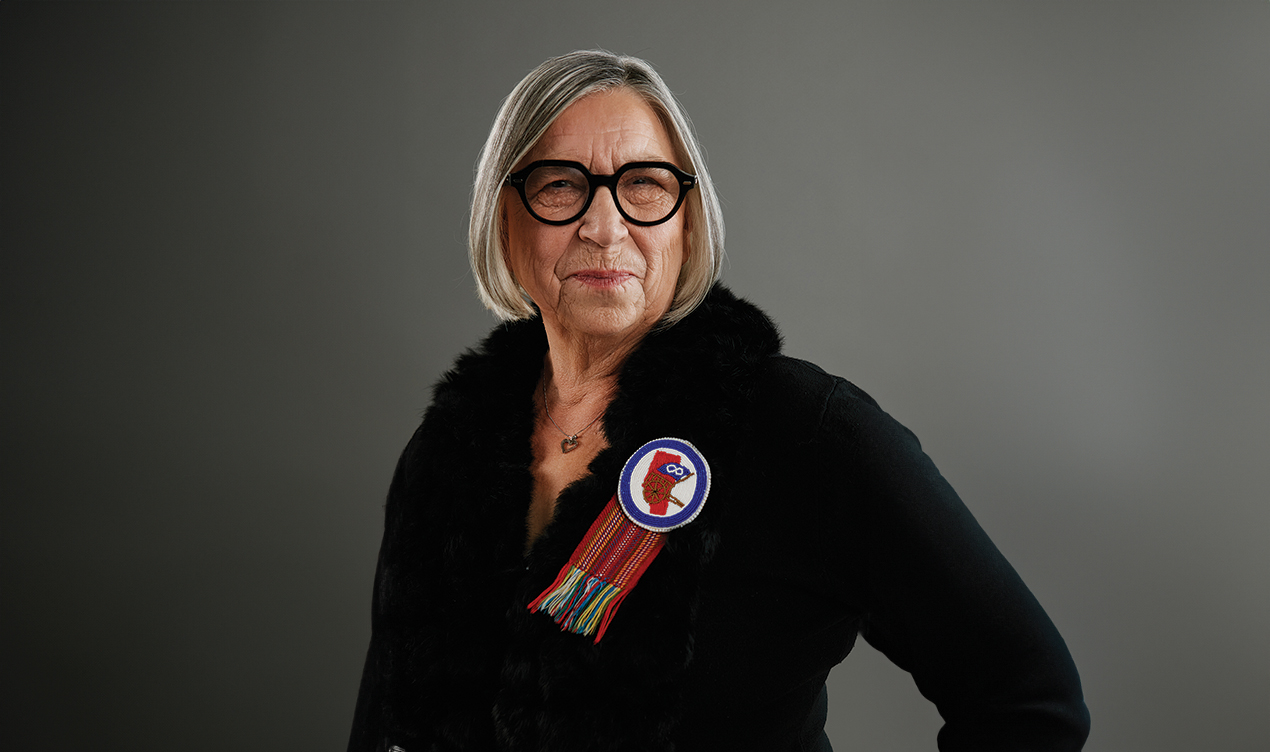When Audrey Poitras ran for president of the Métis Nation of Alberta (MNA), she didn’t think she’d win.
She had always been a proud member of the Métis nation but hadn’t been involved in leadership activities. This changed in 1991, when she and her husband sold their dry-cleaning business, and Poitras returned to a career as a professional accountant, securing a role as MNA’s finance director.
In the subsequent five years, Poitras realized that the organization could be doing much more to improve the lives of Métis people and advocate for their rights. “I had made up my mind that I couldn’t stay there and work for my nation the way it was,” she says.
But when she informed constituents she planned to leave, they begged her to stay; by running for a leadership position, they argued, she could make change from within. Poitras considered this and, after talking with her family, agreed: “[I said] yeah, I’ll run — but the only way you’re going to change things is if you go to the top, so I’ll run for president.”
Poitras was dubious of her chances. Besides being new to the organization, she was a woman and finance professional — two qualities never seen in an MNA president. But, in 1996, the nation’s voters proved her wrong. “The people wanted change. They wanted things to be done differently,” she says. But this was not a one-time event; voters would re-elect MNA’s first woman president seven times. After more than 30 years, Poitras chose not to run again and the MNA — whose membership now exceed 65,000 — voted in a second woman president, Andrea Sandmaier.
During her tenure, Poitras pushed both levels of government to create the programs and opportunities Métis were entitled to as per the Constitution Act of 1982, which named Métis people as one of three distinct and equal Indigenous groups in Canada. One key area was education, which MNA citizens had identified as critical for the nation’s empowerment. Under her leadership, MNA established a $30-million scholar-ship portfolio, 20 agreements with postsecondary institutions of Alberta, and the Rupertsland Institute, a non-profit organization providing training and educational opportunities for Métis citizens.
